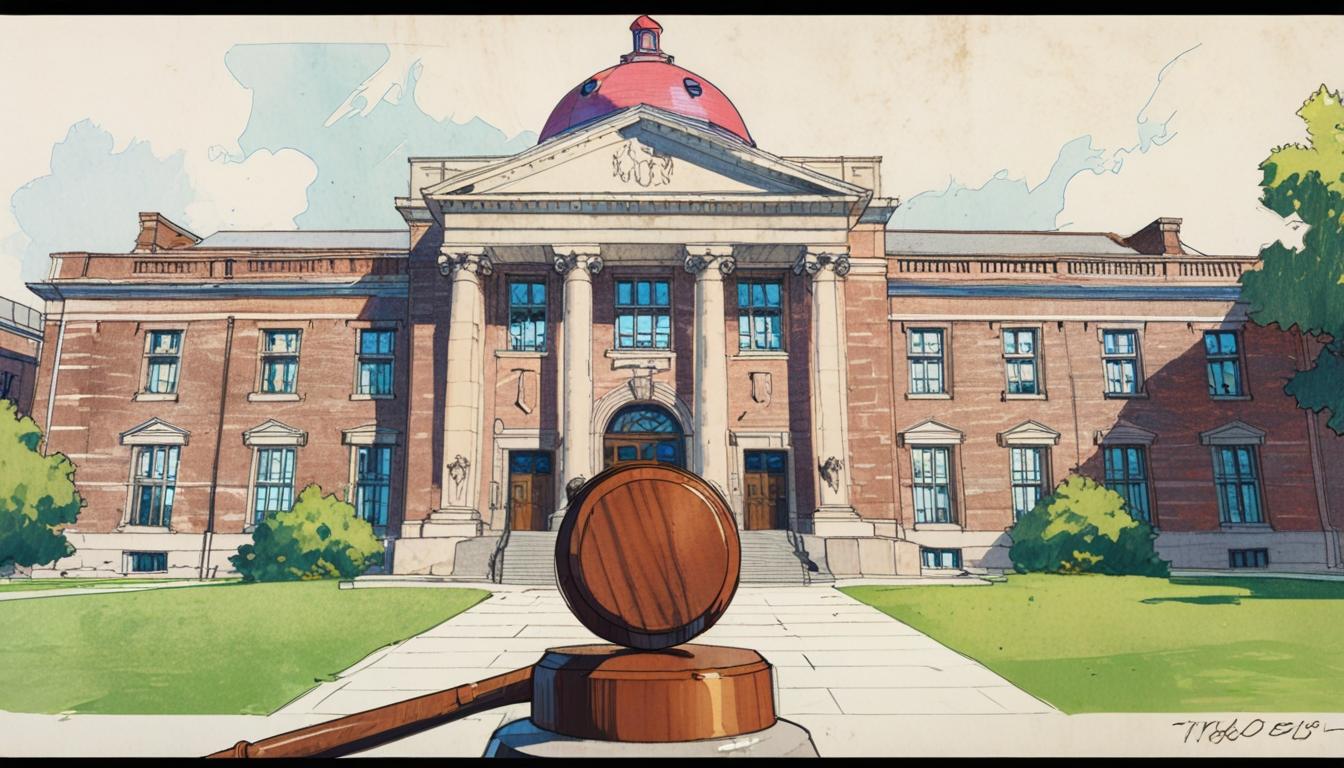Harvard University has initiated legal action against the Trump administration over what it describes as an attempt to exert control over academic decision-making at private institutions. The dispute centres on the administration’s threat to review approximately $9 billion in federal funding allocated to the university, following Harvard’s refusal to comply with a set of conditions proposed by the government. Key among these demands was the appointment of an external overseer to monitor whether the university’s curriculum reflects a “diverse” range of viewpoints. Harvard is particularly seeking to lift a freeze placed on $2.2 billion in grants.
This legal challenge emerges amidst a broader campaign by the Trump administration aimed at several Ivy League universities. The administration has characterised campus protests related to Israel’s conflict in Gaza as anti-American and suggested that these institutions demonstrate liberal bias and antisemitism, an allegation rebutted by Harvard’s president, Alan Garber. Speaking out, Garber stated, “No government – regardless of which party is in power – should dictate what private universities can teach, whom they can admit and hire, and which areas of study and inquiry they can pursue.”
Indications of wider resistance within the academic community have surfaced. More than 100 university presidents across the United States signed a joint statement condemning what they deem “unprecedented government overreach and political interference” in higher education, signalling a collective stand among educational institutions.
In international news, the Vatican has confirmed that Pope Francis died from a stroke followed by heart failure. The Vatican’s official statements revealed that the pontiff requested to be buried in a simple and unadorned tomb. Political and religious leaders worldwide have offered tributes following the death of the first Latin American pope. The election of his successor remains uncertain, with speculation focused on a select group of candidates, though the papal conclave operates with strict secrecy.
Meanwhile, turmoil continues in Gaza. The United Nations’ humanitarian agency, alongside the Palestine Red Crescent Society (PRCS) and Gaza’s civil defence service, have rejected an Israeli military investigation report into the deaths of 15 Palestinian medics and rescue workers in Rafah last month. The investigation, conducted by Israel Defence Forces (IDF), attributed the incident to “professional failures”. However, the PRCS spokesperson Nebal Farsakh criticised the report, saying: “The report is full of lies. It is invalid and unacceptable, as it justifies the killing and shifts responsibility to a personal error in the field command when the truth is quite different.”
These aid workers were killed during two separate rescue missions on 23 March, with initial IDF claims stating that the medics’ vehicles lacked emergency signals. This assertion was contradicted by mobile phone footage. The IDF’s follow-up inquiry pointed to several breaches of military orders and reporting failures.
Additional developments include a decline in US stock markets, coinciding with President Donald Trump’s public criticism of Jerome Powell, chair of the Federal Reserve. Trump labelled Powell “a major loser” for not lowering interest rates, a statement that coincided with significant drops in the S&P 500 and Nasdaq indexes.
Renewed military aggression has been reported in Ukraine's southern Kherson region, where Russian forces reportedly killed at least three people following a ceasefire period during Easter that Kyiv accused Moscow of violating.
In the United States, Trump defended his Defence Secretary, Pete Hegseth, after reports emerged of Hegseth sharing information about US military strikes in Yemen within a private messaging group involving family members.
The United Nations’ special representative to Haiti has warned that ongoing gang violence is pushing the nation toward a “point of no return,” resulting in escalating chaos. Meanwhile, the Department of Homeland Security secretary, Kristi Noem, reported the theft of her purse at a restaurant, which contained $3,000 in cash along with personal identification and apartment keys.
On the environmental front, a global survey involving 130,000 participants across 125 countries revealed that 89% of people worldwide believe governments should take stronger action against climate change. However, many feel isolated in this view, caught in a “spiral of silence.” In response, The Guardian is collaborating with numerous newsrooms to launch the 89 Percent Project, designed to shed light on this widespread, yet often unspoken, public opinion.
In personal narratives, the story of Pedro Niada from Robinson Crusoe Island, Chile, recounts his harrowing experience surviving a tsunami in 2010, involving a desperate effort to save his family amidst rapidly flooding conditions.
Scientific inquiry into conservation and genetics was highlighted by reports that Colossal Biosciences, a US biotech firm, claims to have resurrected the dire wolf, an animal extinct for over 12,500 years. This raises questions on the scope of ‘de-extinction’ technologies.
In wildlife observations, researchers from the University of Exeter documented wild chimpanzees in Guinea-Bissau sharing fermented African breadfruit, containing alcohol equated to a light beer’s strength. A researcher noted, “Chimps don’t share food all the time, so this behaviour with fermented fruit might be important.”
These varied developments provide insight into ongoing legal, political, humanitarian, economic, environmental, scientific and cultural events spanning across the globe.
Source: Noah Wire Services
